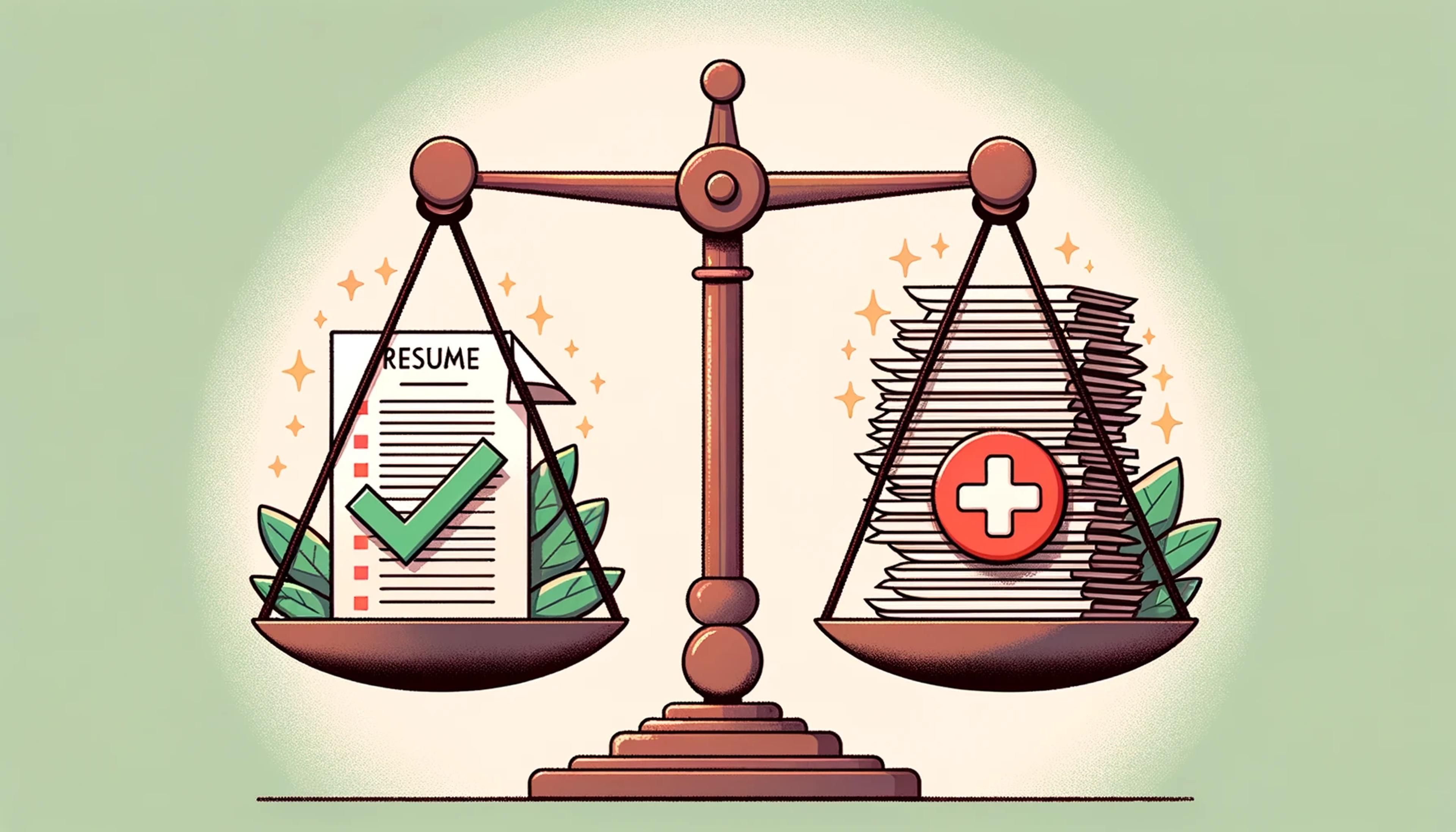- Published on
Why Your Resume Should Not Exceed a Single Page
- Author
- Name
- Aiden Sterling
- Title
- Writer

In the realm of job applications, brevity and impact often outweigh exhaustive detail. It's a concept that aligns with the modern pace of recruitment and the inundation of applications faced by hiring professionals. In this context, the single-page resume emerges not as a trend, but as an indispensable tool to make one's qualifications immediately accessible. Here's why keeping your resume confined to one page is more potent than you might think.
The Attention Economy
Hiring managers are on the frontlines of the corporate world's attention economy. They juggle numerous responsibilities, leaving them with precious little time to peruse the often-voluminous applications they receive. A single-page resume serves as a snapshot of your capabilities, ensuring all pertinent information fits within the recruiter's limited attention span. It's not about underselling yourself, but about packaging your skills and experiences into the most digestible format.
Clarity and Focus
A concise resume is often a clearer, more focused resume. With only one page, you're compelled to hone in on only the most relevant aspects of your professional journey. This necessity of choice demands a keen understanding of the role you're pursuing, ensuring you highlight only the skills, experiences, and achievements most aligned with the position. The result is a document that speaks directly to the needs and interests of the hiring manager, devoid of any potential chaff that could dilute your presentation.
Prioritization and the Art of Editing
A one-page limit is less about restriction and more about meticulous prioritization. This approach tests and showcases your ability to edit, to self-reflect, and to adapt. Candidates who can distill diverse experiences into a single, coherent narrative demonstrate an understanding of strategic presentation. This skill is invaluable in many professional settings, indicating that you know not only how to communicate but also how to do so with respect for your audience's time and attention.
Modern Readability Standards
In the digital age, readability is king. Single-page resumes align with the contemporary consumption of information—quick, focused, and highly selective. Longer documents risk being relegated to the 'read later' category, which in the world of recruitment, often translates to 'never.' A compact resume mimics the convenience of modern communication tools, catering to the reading habits of the contemporary professional.
In summary, a one-page resume stands as a testament to your ability to consolidate, prioritize, and effectively communicate your professional persona. It respects the time constraints of recruiters, signals your understanding of your own career trajectory, and aligns with contemporary readability preferences. In the bustling marketplace of potential hires, a single-page resume can set you apart as a candidate who presents with consideration and strategic understanding, speaking volumes more than multiple pages ever could.
